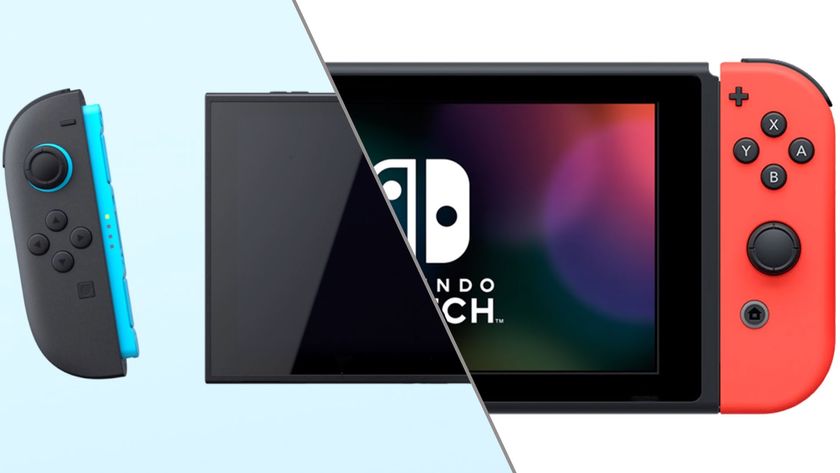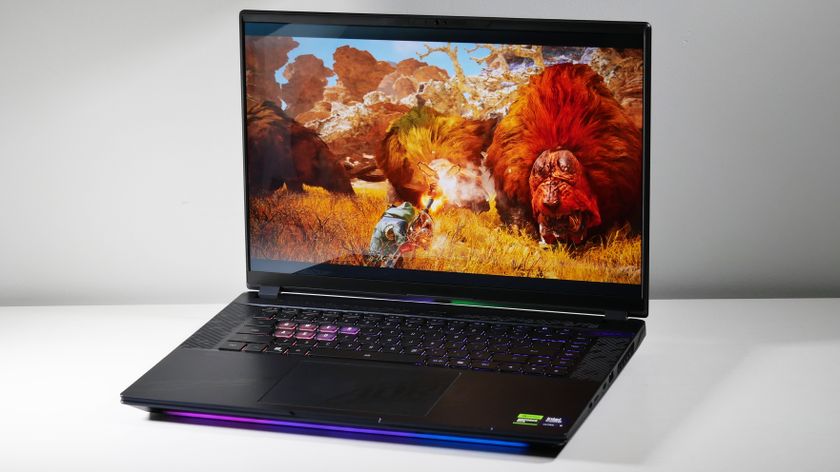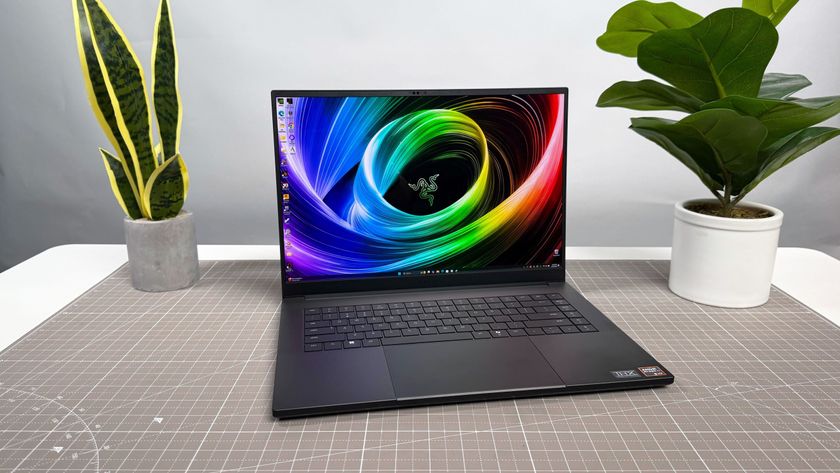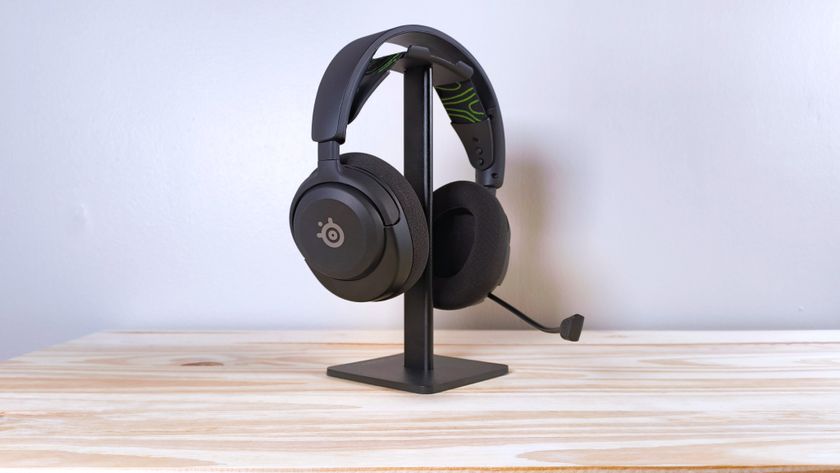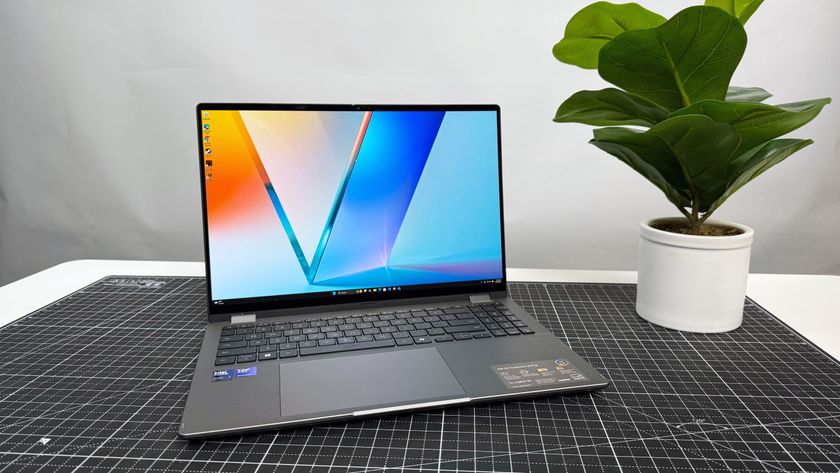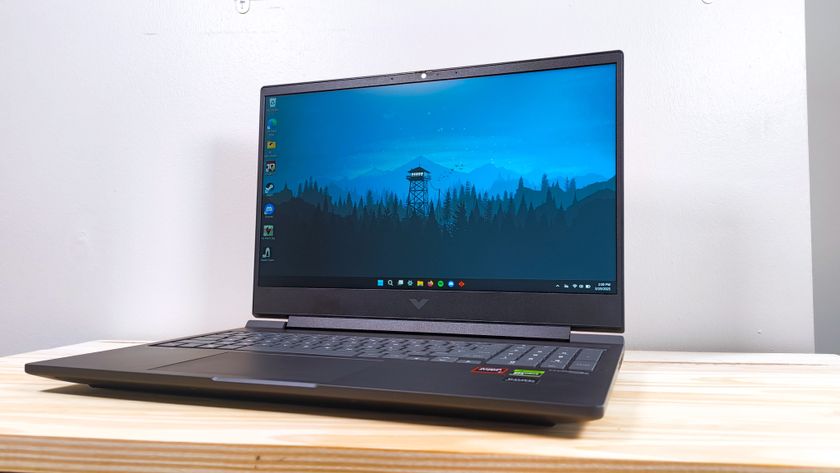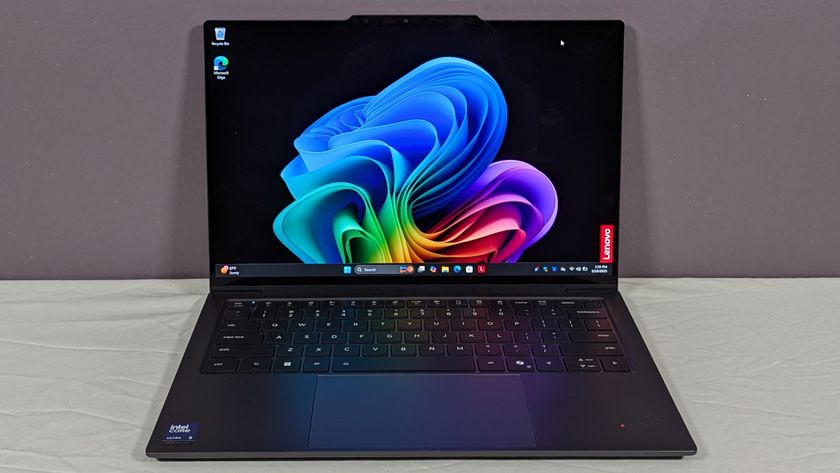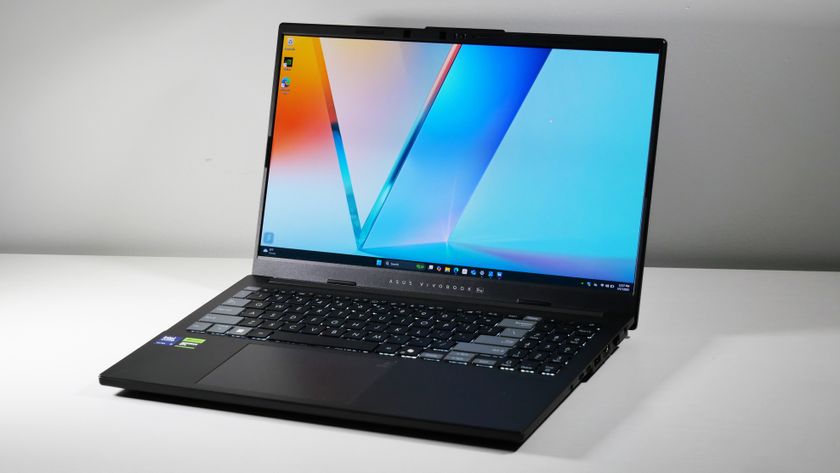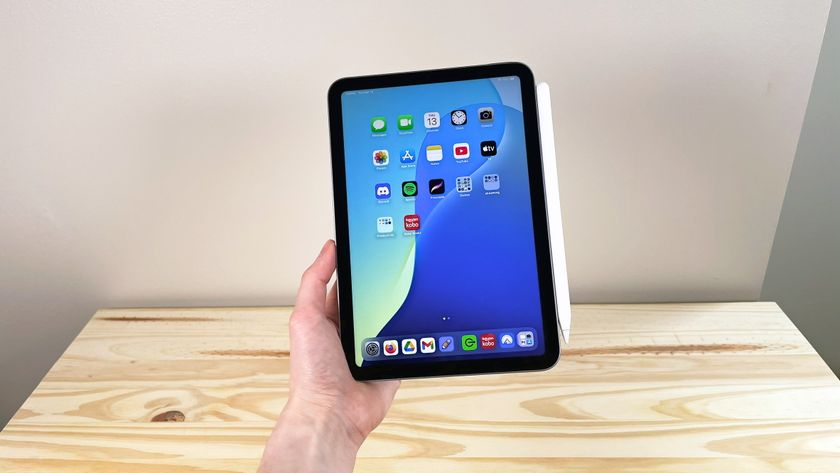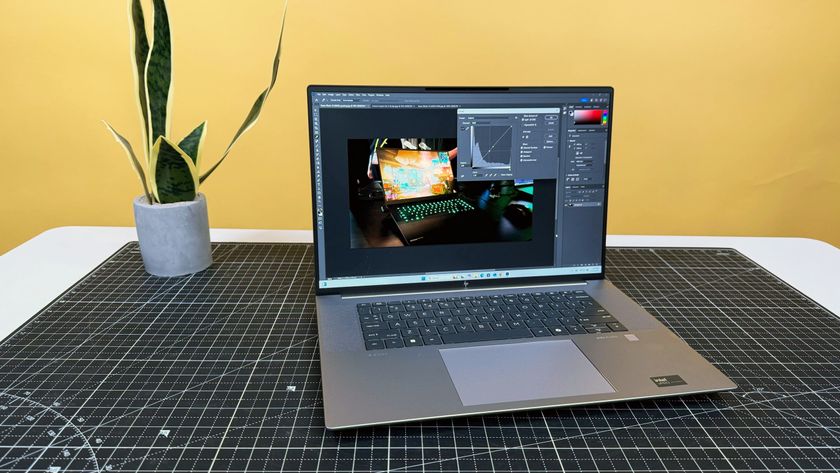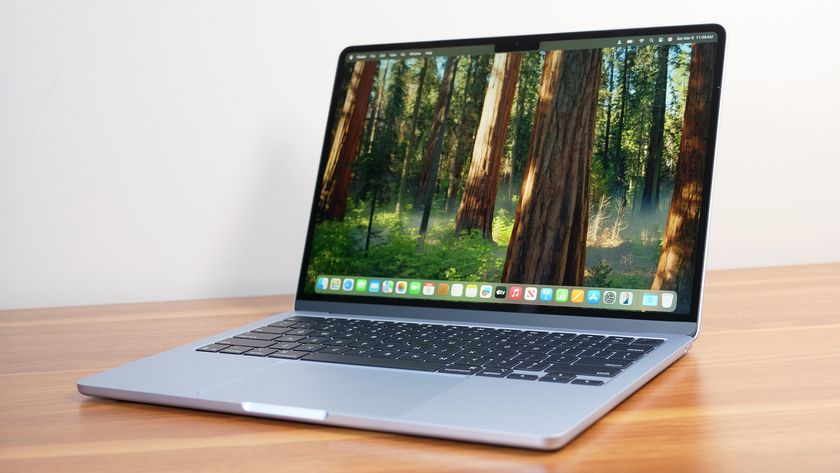Laptop Mag Verdict
Outfitted with a new low-voltage processor and plenty of internal storage, this ultraportable offers 10 hours of endurance and enough muscle for work and play.
Pros
- +
Light, attractive design
- +
Long battery life
- +
Solid overall performance
- +
Good keyboard
Cons
- -
Poor graphics performance
- -
Screen a bit too glossy
Why you can trust Laptop Mag
The ASUS UL Series is the company's first entry into the low-cost ultraportable notebook market, and the UL30A shows off what's great about the line. Taking full advantage of its Intel Ultra-Low Voltage (ULV) processor, this 13.3-inch notebook combines a lightweight chassis with nearly 10 hours of battery life and solid productivity performance. You can get a faster dual-core notebook with a DVD drive for the same price, but if you want lots of endurance and a thin design, the UL30A is a winner.
Design
The UL30A, like several recent ultrathin ULV systems, is a study in minimalism. The brushed aluminum lid eschews fingerprints and exudes a quiet elegance. Inside, you won't find a deck cluttered with multimedia controls or extraneous launch keys. There are just two small buttons: one on the left for launching Express Gate or switching between power profiles, and a power button on the right.
This system features a full-size island-style keyboard, and the black keys contrast nicely with the subtle interlinking diamond/wave pattern that fills the deck space around it. This design extends to the palmrest on the bottom, and blends almost seamlessly with the touchpad; only a slight dimpling reveals the 1.8 x 3.0-inch touchpad area.
Status lights for power, battery, hard drive access, and wireless are on the edge of the skinny front lip of the notebook, rounding out the machine's subtle design touches.
In terms of overall dimensions and aesthetics, it's easy to compare the UL30A to the MacBook Air. With a footprint of 12.7 x 9.2 inches, the UL30A takes up about as much space as Apple's ultraportable; though a bit thicker at .94 inches, those extra tenths-of-an-inch allow for more ports. At 4.0 pounds, the UL30A is 0.4 pounds heavier than the Acer Aspire Timeline 3810T, another favorite ultraportable system of ours.
Keyboard and Trackpad
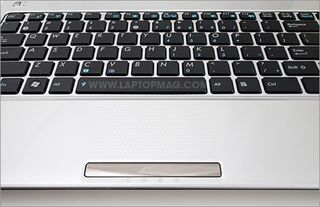
Click to enlarge
The keys don't have as much spring as we'd like, but they provide decent tactile feedback, and we were able to achieve our normal typing speed right away. Touch typists may find the slightly undersized Shift key an issue, though the placement is good. We appreciated that the Home, End and Page Up/Down keys share their own column on the right with the Delete and right arrow keys, but wish the arrow buttons were smaller (to make more room for Shift). One minor drawback is that we kept accidentally hitting the Home key when reaching for Backspace, but this happened less frequently over time.
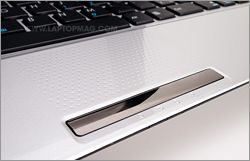
Click to enlargeThe slight friction on the touchpad allowed for precise movement while also marking the usable area. We appreciate that the pad is flush with the palm rest area, but it was too easy for our finger to accidentally glide right off into no man's land. The touchpad also supports the two-finger scroll multitouch gesture, but this took a few hours to get used to since we instinctively want to use right-side scrolling. Though we prefer two distinct buttons for left and right clicks, the single mouse button is long enough that we never accidentally clicked the wrong side. It is, however, a bit stiff.
Display and Audio
The bright 13.3-inch display offers rich colors and deep blacks, though the 1366 x 768-pixel screen is a bit too glossy. While watching an episode of Torchwood: Children of Earth under flourescent lights, we could see our reflection during the darker scenes; this issue isn't as pronounced in low light. Despite the glossiness, horizontal and vertical viewing angles on the UL30A are quite good. Three people can sit and watch video comfortably without encountering color distortion.
When streaming video from Hulu, we noticed a lack of sharpness in both standard and high-definition videos. The opening scene from Legend of the Seeker, a fast-paced action sequence, played smoothly after it buffered, but lacked the crispness we're used to with 720p video. Downloaded clips, however, didn't have the same issue; The Discoverers (from the Windows WMV HD Content Showcase) looked sharp, and played back entirely stutter-free.
Given the UL30A's size and price, we didn't expect stellar speaker performance. It produced enough sound on 50 percent volume to fill a small room, and on 100 percent we could still hear tracks clearly over noise from an air conditioner. The distinct bass line from Superchick's "One Girl Revolution" was barely audible, even with the Realtek HD Audio Manager's equalizer setting on Bass. But Jill Sobule's rock/folk-flavored "Nothing to Prove" sounded good on the default settings.
Ports and Webcam
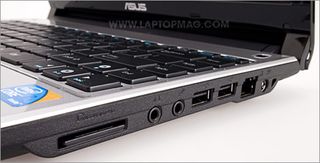
Click to enlarge
On the left side of the UL30, HDMI and VGA connections join one USB port, while Ethernet, headphone, mic, two USB ports, and a 5-in-1 card reader fill out the right side. There's no integrated optical drive, which isn't surprising on a system less than an inch thick. Unless you burn a lot of discs, it's easy to live without an internal drive with the advent of ubiquitous software and media downloads.
The 0.3-megapixel webcam naturally doesn't deliver great video. When chatting with a friend on Skype, she noted a lack of sharpness and washed out colors. However, the video didn't stutter, and audio came though clearly. The webcam management software, LifeFrame, will not only record video and take pictures, but also adds fun accessories, filters, and frames to both still and moving images.
Performance
Our ASUS UL30A, which included a 1.3-GHz Intel Core 2 Duo SU7300 ULV processor, 4GB of RAM (upgradable to 8GB), and Windows Vista Home Premium (32-bit), scored 2,442 on PCMark Vantage. This is almost 300 points below the ultraportable average, and more than 200 points below the Acer Timeline 3810T, which has a slightly more powerful processor. Still, the UL30A has an advantage over such single-core ULV systems as the MSI X340, whose score was almost 800 points less.
The 5,400-rpm, 500GB hard drive completed the LAPTOP Transfer Test (copying a 4.97GB folder of mixed media) in only 3 minutes and 39 seconds, or 23.2 MBps. This is nearly 4.0 MBps above the category average, and just below the Timeline 3810T's score of 24.8 MBps. Unfortunately, the UL30A takes a slow 1 minute and 16 seconds to boot fully into Windows--16 seconds longer than the average--due to the software that loads on startup.
Anecdotally, performance was snappy. We effortlessly multitasked between a browser with over ten tabs open, Google Earth, Microsoft Word, Skype, and Thunderbird while writing this review.
Graphics
While its performance is good enough for everyday tasks, consumers won't flock to the UL30A for multimedia or gaming. Intel's GMA X4500MHD graphics didn't wow us when watching both standard and high-definition video, so we weren't surprised at the low 3DMark06 score of 760. This notebook beat the Timeline 3810T (698) and the Lenovo IdeaPad U350 (604), but came up short when compared to the average ultraportable (830). When converting a 114MB MPEG-4 file to AVI using HandBrake, the system took 10 minutes and 55 seconds, about 4 minutes and 30 seconds faster than the category average, and more than 11 minutes faster than the Timeline 3810T.
Taking a Google Earth sightseeing tour (with 3D buildings turned on) resulted in choppy flights between locations; it took so long for many sights to load that the program often moved on while the view was still pixilated. Most notebooks in this category deliver slideshow-like slowness in our Far Cry 2 test, and the UL30A is no exception. It scored 5 frames per second at 1024 x 768-pixel resolution, and 2 fps at its native 1366 x 768 resolution; 1 and 2 fps below average, respectively.
Wireless and Battery
The Intel WiFi Link 5100 wireless n radio delivered throughput of 23.8 Mbps at 15 feet from the router, which bested the category average of 19.4. The 50-foot score of 15.6 is below average by about 1.0 Mbps, but it's still decent.
While the UL30A's eight-cell battery didn't quite reach the advertised 12 hours of runtime when we ran the LAPTOP Battery Test (continuous Web surfing over Wi-Fi), it still impressed. At 9 hours and 55 minutes, this ultraportable's runtime is more than double the category average (4:57), and is one of the longest-lasting notebooks we've ever tested. Even the Toshiba mini NB205netbook lasted 31 minutes less. With battery life this long, the UL30A should power through a full day, or even a transcontinental flight.
Users can also easily switch between power modes in Windows by pressing the button on the upper left of the deck. It moves sequentially between High Performance, Entertainment Mode, Quiet Office, and Battery Saver.
Green Testing
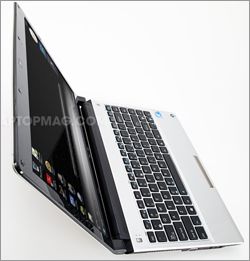
Click to enlarge
It took 3 hours and 50 minutes to fully charge the UL30A's battery, and during that time the system used an average of 36.3 watts. The LAPTOP Battery Efficiency Rating (the total amount of watts it takes to recharge divided by the battery life) is an impressive 14.0; this is much better than the 22.2 ultraportable average, and is one of the best scores we've seen since we began green testing. This notebook, however, has yet to be rated by EPEAT.
Software and Warranty
The UL30A comes with a full suite of ASUS utilities, including AIRecoveryBurner, FancyStart, LifeFrame, Live Update, SmartLogon, and the Splendid Video Enhancement Utility. Picasa 3 also comes preloaded, along with trial versions of Microsoft Office 2007 and Norton Internet Security.
The UL30A also comes with ASUS Express Gate, a Splashtop-based instant-on OS that takes less than 5 seconds to load. From here you can browse the Internet, play music, load photos, chat on Skype or other popular IM clients, and play online games. The status icons on the bottom right display available wireless connections and battery life, and give you control over brightness, among other screen options. You can click the Power Off button to shut down the system, or the Exit button to boot into Windows. You can access Express Gate from the button on the upper left of the deck when the system is shut down or hibernating.
The UL30A comes with a two-year global, one-year accidental warranty, and 24/7 phone support. Click here to see how ASUS fared in our Tech Support Showdown.
Configurations
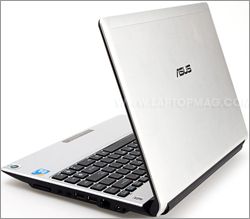
Click to enlarge
In addition to our configuration, the UL30A-A1, customers can get the UL30A-X3 model with all the same specs except a smaller, 320GB hard drive and a max of 4GB of RAM for $749. The UL30A-X1 also has the smaller drive and up to 4GB of RAM, plus a less powerful 1.4-GHz Intel Core 2 Solo CPU for $649.
Verdict
ASUS' first entry into the ULV market provides a great balance between portability, power, and price. Though this notebook isn't a multimedia powerhouse, it doesn't need to be. Consumers who want a light, portable machine that won't choke when taxed or die after a few hours without the power cord will appreciate this system. Though it isn't as thin or as light as the MSI X340 (currently priced at $699), the UL30A easily outperforms it. The Acer Aspire Timeline 3810 is also a strong choice, and offers slightly better performance, but it costs $50 more and lasts about 2 hours less on a charge. The bottom line: At $799, the UL30A is a compelling value.
ASUS UL30A Specs
| Bluetooth | Bluetooth 2.1 |
| Brand | ASUS |
| CPU | 1.3-GHz Intel Core 2 Duo ULV SU7300 |
| Card Slots | 5-1 card reader |
| Company Website | http://usa.asus.com |
| Display Size | 13.3 |
| Graphics Card | Intel GMA X4500MHD |
| Hard Drive Size | 500GB |
| Hard Drive Speed | 5,400rpm |
| Native Resolution | 1366x768 |
| Operating System | MS Windows Vista Home Premium (32-bit) |
| Ports (excluding USB) | VGA, Microphone, Headphone, HDMI |
| RAM | 4GB |
| RAM Upgradable to | 8GB |
| Size | 12.7 x 9.2 x 1.0 inches |
| USB Ports | 3 |
| Video Memory | 132MB |
| Warranty/Support | Two-year global, one-year accidental/24/7 toll-free phone |
| Weight | 4.0 pounds |
| Wi-Fi | 802.11b/g/n |
